DO WE crumble in the face of a scolding? Or lose our wits when our mistakes are pointed out?
Or are we blithe spirits that take things in our stride, waddling along dripping water off our backs as we go?
As a society, are we able to take criticism and soldier on, or are we taken aback, agape and unsettled into inaction, fumbling to react promptly?
Over the generations, the view seems to be that Singapore society has become more tender, easily bruising and able only to function with some resilience within the context of its geographical borders.
Very few seem to have ventured beyond our shores and made a success of it, unlike our pioneers who journeyed to forge a new life and society. The quick climb from third to first world status has brought with it comforts untold and expectations of entitlement.
Added to this, the highly connected world puts us out there more than ever before — the Internet and social media have made it shockingly easy to view and comment on the personal and professional lives of almost everyone. And in this voyeuristic climate, the keyboard warriors are relentless in their desire to snoop and gather the dirt on others.
While we are quick to freely share our experiences with anyone who is interested, if the tables were turned, we are not as open to the criticisms that will inevitably bring. In a day where everyone wants a voice, are we ready to hear what they have to say?
Are we too thin-skinned as a society?
We speak to people from various industries and backgrounds to get their take on the subject.
Holman Chin, Director, Mind-Science Centre
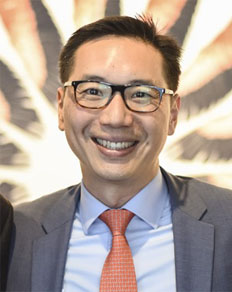 The question “Are we thin-skinned?” is like a modern version of “Am I fat?” and provides for provocative clickbait. Of course, the answer depends on where you are standing economically, socially, culturally and the prism you are using to view the present. Allow me to generalize four views.
The question “Are we thin-skinned?” is like a modern version of “Am I fat?” and provides for provocative clickbait. Of course, the answer depends on where you are standing economically, socially, culturally and the prism you are using to view the present. Allow me to generalize four views.
De-evolution: A colleague studying the human brain noted that brain development has not progressed by far in comparison to society and environment. Digital distractions, self-experienced stress and anxiety to cope with expectations at work, family and society may contribute to our perceived vulnerability to performance disruptors. We know more but understand less. So yes, technology and social stresses have made us more thin-skinned (and less intelligent) by today’s standards.
Global Populism: In the face of globalization and spurned by terrorism, a resurgent tide of populism has swept western democracies, marked by the dramatic US election of Donald Trump. This swell has also exposed the uglier side of humanity. Blatant and coded expressions of racism, bigotry, sexism and other prejudices have been promoted by political leaders for personal gains and mimicked by the electorate as the new normal. If being thin-skinned is opposing this cancer in every instance, then we are not thin-skinned enough. This is the Millennial crusade to preserve our humanity.
The 99%: Nearly half of the world’s population — more than 3 billion people — live on less than $2.50 a day. With steady population growth in developing countries, increasing scarcity of natural resources, displacement of people through war and the concentration of wealth in the 1%, the number of people in poverty or near poverty will only continue to grow. Daily survival in conditions of poverty requires adaptability and resilience and the ability to withstand socio-economic and oftentimes racial, cultural and ethnic biases. Based on this global population metric, the world has never been more thick-skinned. Of course, you and I are just armchair pontificators in this first world, glass half-empty exercise.
The Bubble: In the past few decades, Singapore has enjoyed peace and prosperity and, as a result, flourished into a first world country with a rising middle class. The downside of prosperity has been complacency, a lack of hunger, innovation and the blurring of entitlement and privilege. Millennials in Singapore are commonly perceived as “thin-skinned” and have even been mocked as the “strawberry generation” for their inability to withstand social pressure and lack of work ethic. One could argue that this could be a global phenomenon resulting from the white noise and distractions of the information age but it may also be a reflection of changing social values moving from the individual to a greater global consciousness. We may just be too old, stubborn and “thick-skinned” to appreciate that.
Thusitha de Silva, Financial Journalist, 55
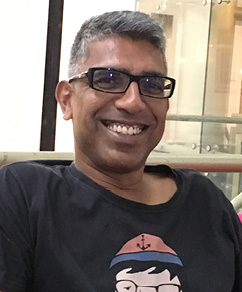
If you define being thin-skinned as being sensitive to criticism, there is certainly a lot of that going around in Singapore. One reason could be that Singapore is still a young country looking for a common identity. The walls that have been erected to separate the different races and religions make the quest for a Singaporean identity even harder, and they tend to make everyone even more sensitive.
Things are exacerbated by Singapore being such a small place, with people practically living on top of one another. However, one good thing about being thin-skinned is that it can help people vent their anger less dangerously. This is better than being thick-skinned and letting your anger simmer and simmer until it explodes.
You also get the feeling that the elites in Singapore society do not like to be criticised, and thus are thin-skinned. They tend to stick together and criticisms that come from outside their circles are usually disregarded.
You Might Also Like To Read:
May Day! Repetitious Vicious Cycle Ahead!
Actually, if you think about it, all criticisms of the elites tend to come from outside their circle. You never hear elites criticising each other publicly. The problem is that there is a serious lack of magnanimity when elites are criticised. We have seen it in Singapore, across the political, industry and business landscapes.
The elites should be setting good examples for everyone else, in terms of taking on criticism, but unfortunately they don’t.
The younger generation in Singapore also tend to be thin-skinned. While mom and dad were off working, they were alone at home or raised by helpers who they could order around. We should not forget that Singapore is still in the early stage of the affluent cycle, perhaps just one generation in for most Singaporeans. They still have not learnt how to treat others who are not as privileged as them. Any misstep by the latter is not seen as par for the course but instead something that must be acted upon. Such sensitivities typically fade when people have been wealthy for more than just one generation. With experience comes knowledge. Hopefully, Singaporeans can be more laidback and less thin-skinned about life in the next generation.
John Bittleston, Founder Chair of Terrific Mentors International Pte Ltd
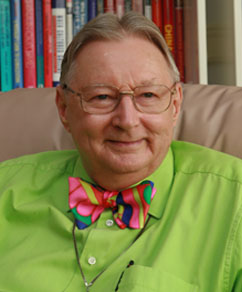
Most Westernised societies have become spoilt. They have, as a British Prime Minister once famously put it, “never had it so good”.
In a country where only two generations ago there was real hardship and three generations ago occupation by a tough enemy, it is hardly surprising that wealthier parents thought it would be good to indulge their children in a way they had never experienced.
At the same time they realised the importance of education, since it was largely that plus hard work that brought them civilisation and comfort. Add to those the complication of two-parent-earning families and you have a recipe for “thin-skin”.
Does being spoilt make you thin-skinned? In some ways it does. Any slight deprivation is noticed and reacted to immediately. In that sense some Singaporeans are thin-skinned.
A thin skin is not all bad, however, if your sensitivity is more for other people than for yourself.
Have the benefits of rapidly acquired wealth brought the right sort of sensitivity? I think that is still a work in progress. We have divided our society, more clearly than most, into those dedicated to the acquisition of money on the one hand and those who are looking for something more meaningful in life than just spending it, on the other.
Given Singapore’s geographical position and size the status quo is probably essential for independent survival. Singapore itself is still more of a work-in-progress than many people realise. Perhaps in the next phase we can get the money-makers to talk to the visionaries so that both sides can understand each other.
Actually, this has to happen for the world at large, too.
Olga Iserlis, High-Profile Events Management and Author of Save The Date by Olga Iserlis
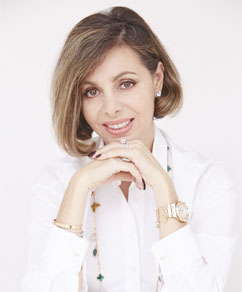 I feel that many of us have narcissistic traits, and these days it’s more than ever. They make us much more vulnerable and less receptive to criticism. Self-esteem, ego, and the inability to be introspective — these are factors that make us less equipped to deal with strong opinions and criticism.
I feel that many of us have narcissistic traits, and these days it’s more than ever. They make us much more vulnerable and less receptive to criticism. Self-esteem, ego, and the inability to be introspective — these are factors that make us less equipped to deal with strong opinions and criticism.
Social media these days elevates our egos too — we can post images that garner positive comments, praises, and admiration. For better or for worse.
The competitive world we live in constantly pushes us to succeed, to achieve, to deliver, and most importantly, never to fail. In this fast-paced environment, looking within is always more difficult compared to blaming others for the faults, failures, rudeness, and various issues around us like relationships, work, business, etc.
Standing up to harassment, learning to develop skills to deal with your own insecurities that lead to defensive behaviour is an essential part of life’s journey. Unfortunately, not every one is ready or equipped to go on this ‘soul search’.
Emotions versus intelligence. Exposure versus privacy. Looking to the future versus living in the moment.
These are just some of the deep and life-changing issues that we face. The way we choose to handle them, or maybe even ignore them, will map our reactions, attitudes, relationships, self worth, and life.
Prof. Kirpal Singh, Director, Wee Kim Wee Centre, Singapore Management University
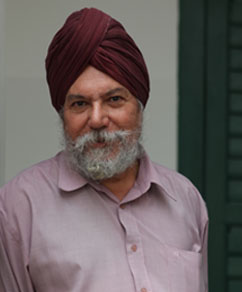
Are we Singaporeans thin-skinned? My answer is YES!
It’s a big YES because we do tend to be overly sensitive when it comes to taking issue with those who criticize us or who prefer not to see things our way.
We are quick to feel hurt and slighted — like teenagers we don’t have the resilience and the capacity to think through what gives us offence before responding. Often, these spontaneous responses appear to be immature, even regretfully umbrageous!
So much on social media convinces me that we do need to be a lot more mature in terms of handling and treating those who hurl criticism at our way of life and living.
Perhaps it goes beyond “maturity”, maybe it is because we are still relatively young (and small as a society) and so haven’t yet learnt how to “cushion” ourselves or how to become “thick-skinned”.
Like children we feel upset, annoyed, irritated, angry, frustrated or bitter when others say things not to our liking. For instance, we top various international rankings for education. But when someone says “Singapore’s educational system is not bad but there’s more to education than scoring As” — we jump and want to start an argument rather than digest the gist of the comment and weigh its real meanings.
We are too defensive and this usually means that we feel insecure and so, are incapable of taking negative comments graciously. One clear indication of this sense of insecurity is our desire, almost need, to defend ourselves at every turn, leaving most Singaporeans tense and anxious.
While it is good to respond to what others say about us, it also behooves us to ponder over what is said before launching counter attacks equally bound to rile.
Young skin is invariably vulnerable, even to small changes, but with proper care and growth the skin becomes thicker and gets used to having others take digs and taunts at us without returning the courtesy in crass and cuss terms.
It will, it must, come — this ability to become thick-skinned, but it will take time.
Meanwhile we can only hope that our thin-skinned behaviour does not result in too many “casualties”.
[poll id=”46″]



















